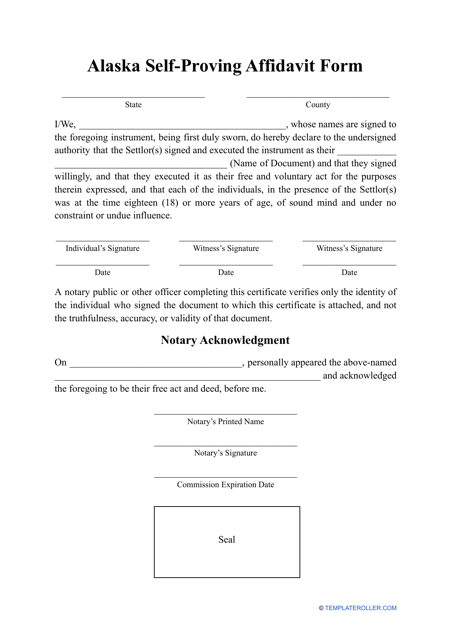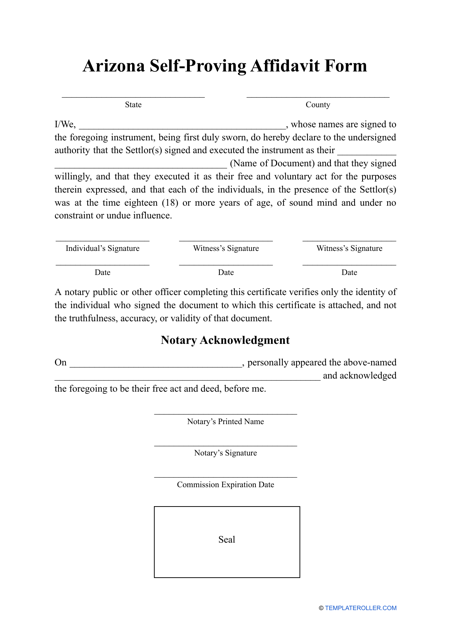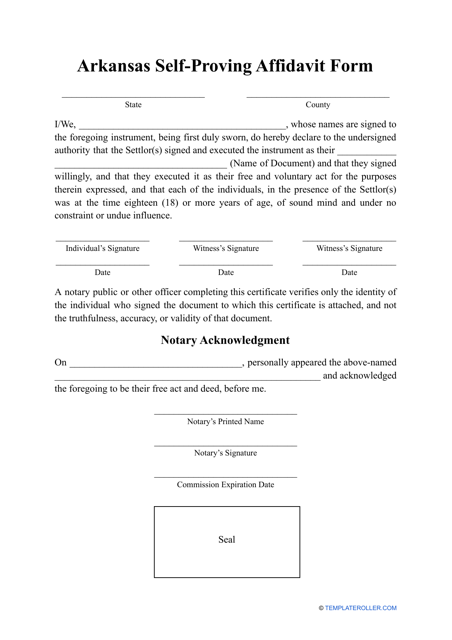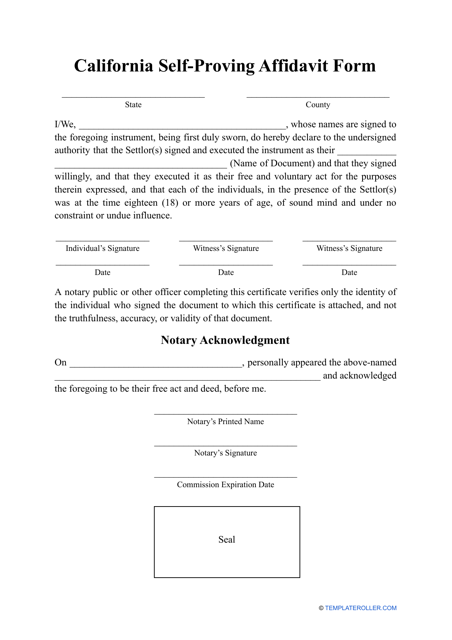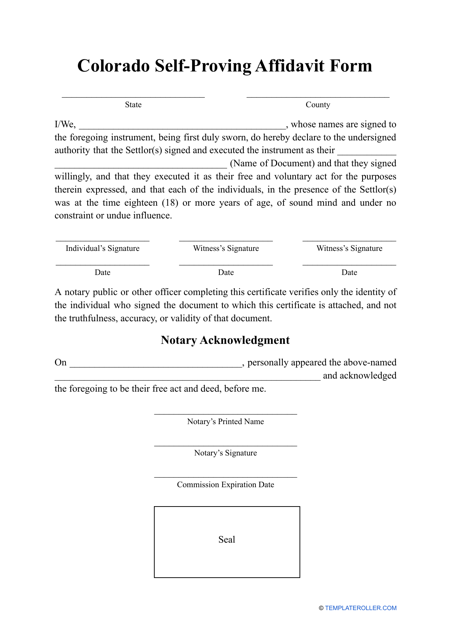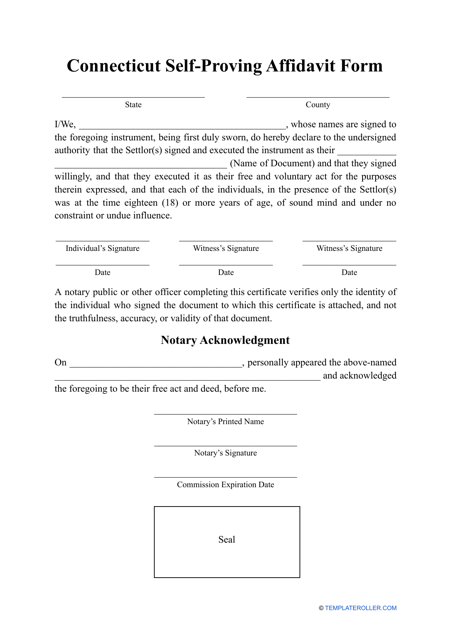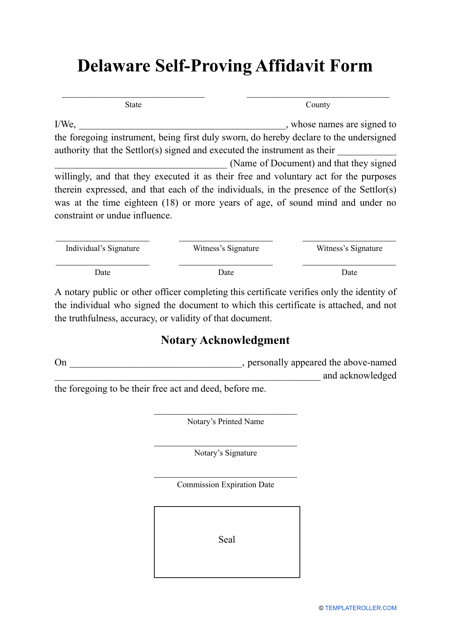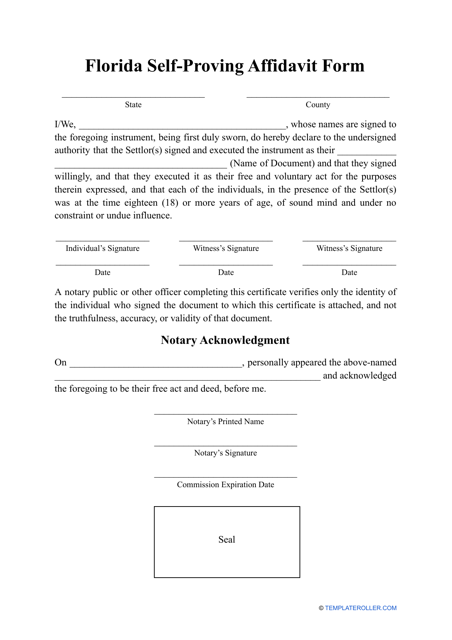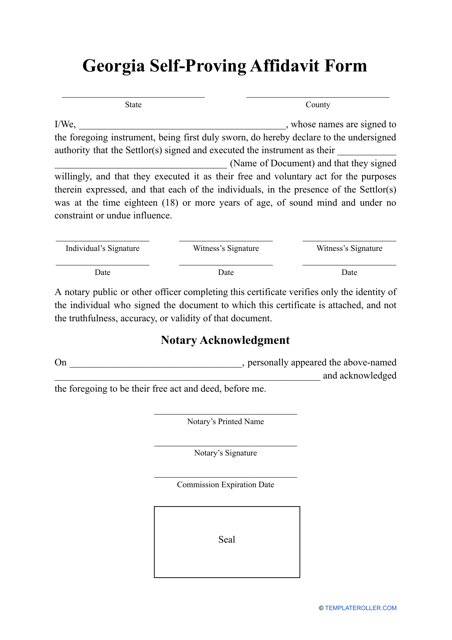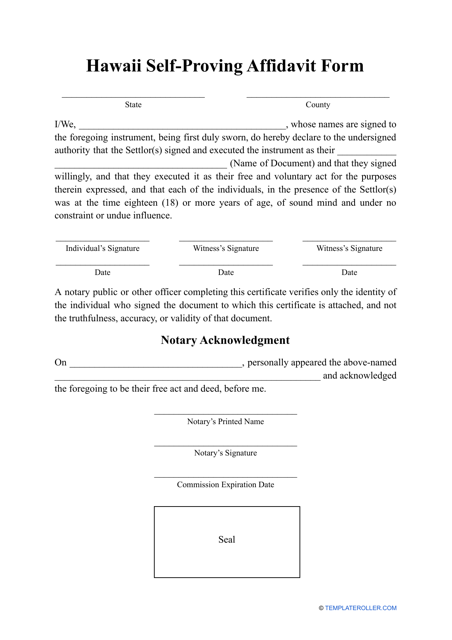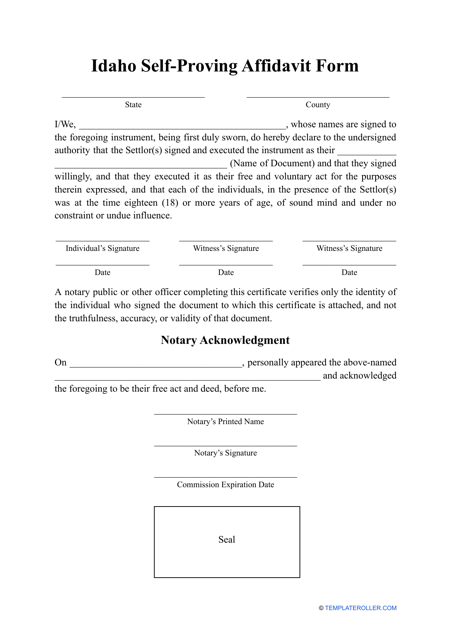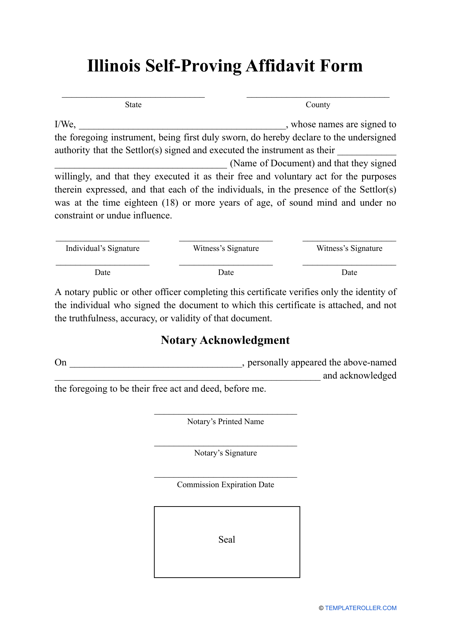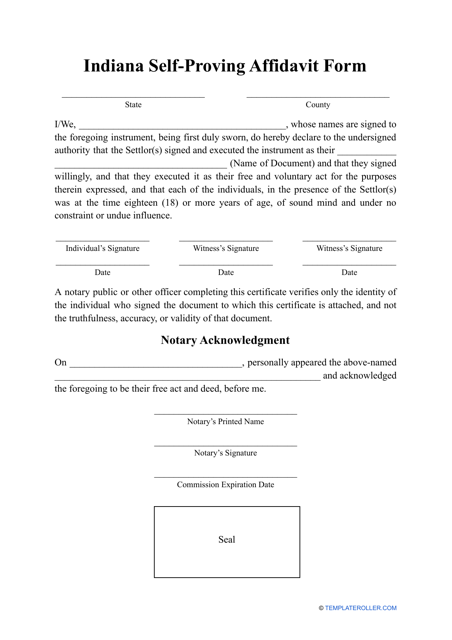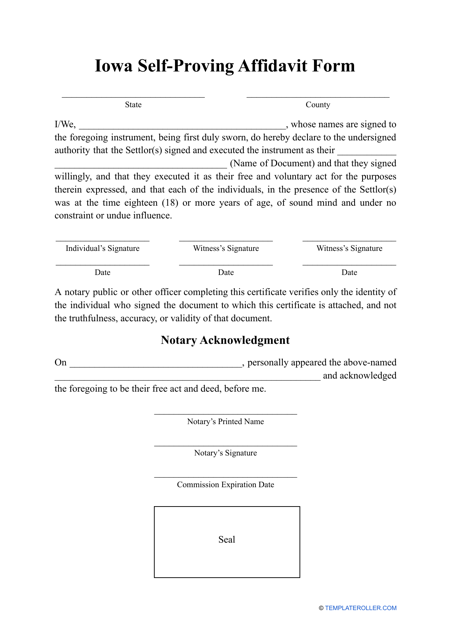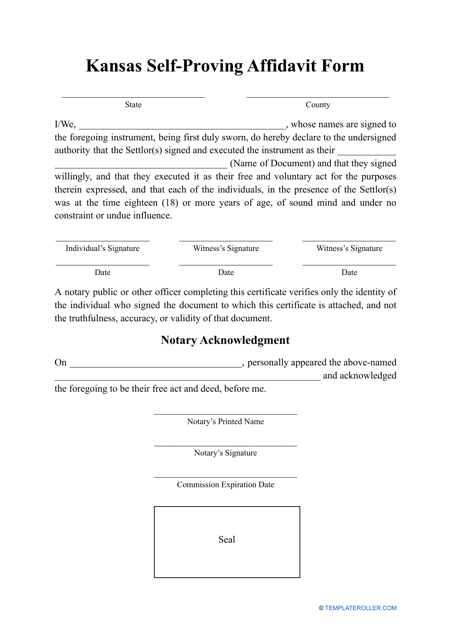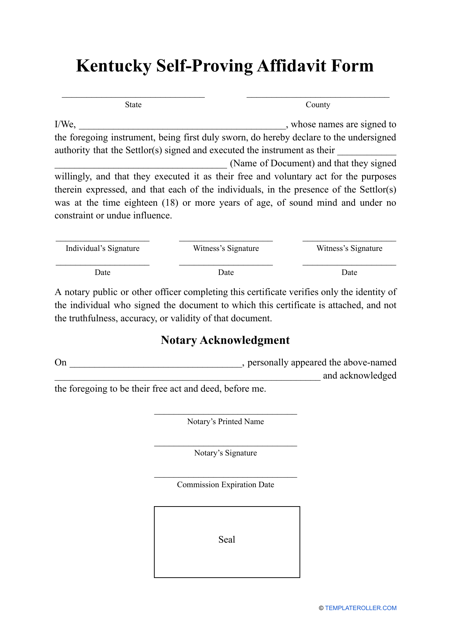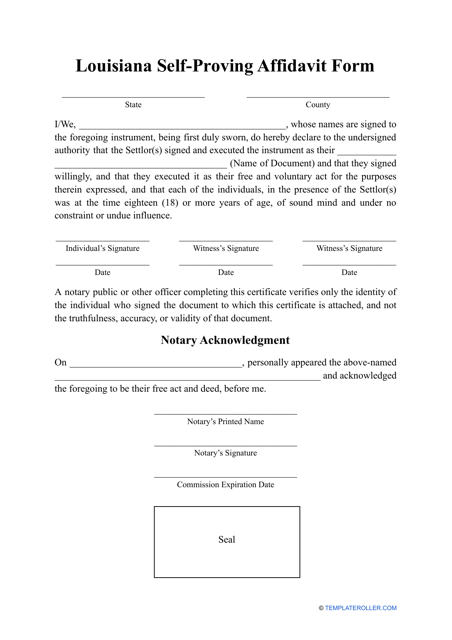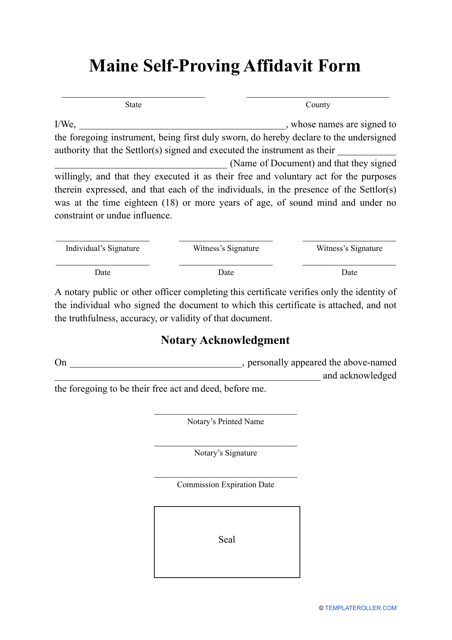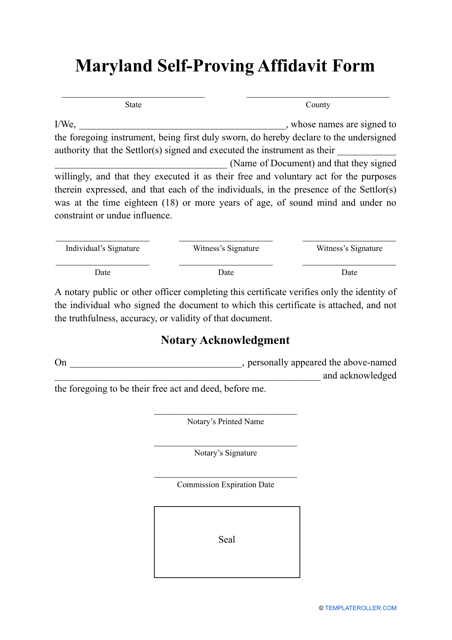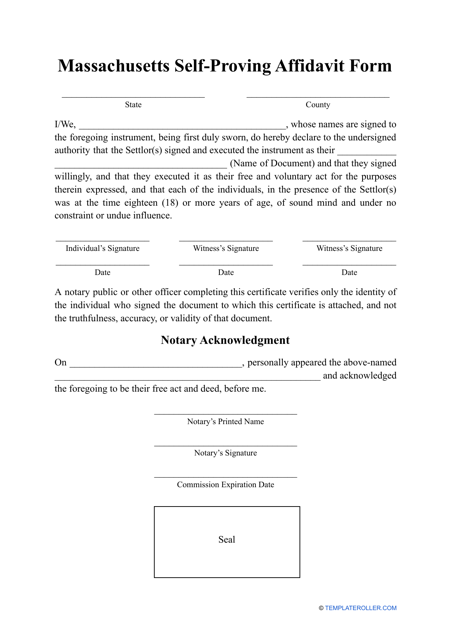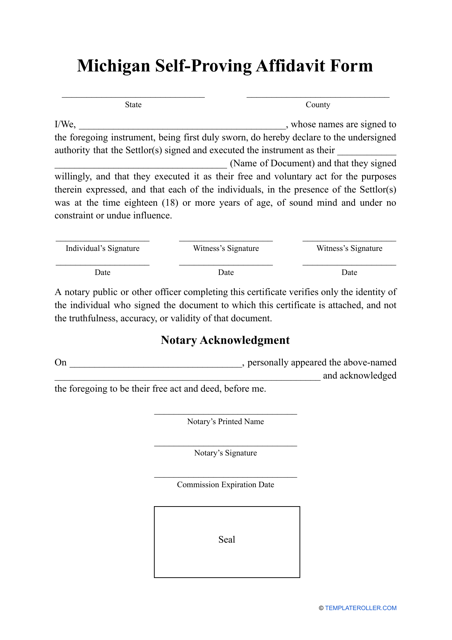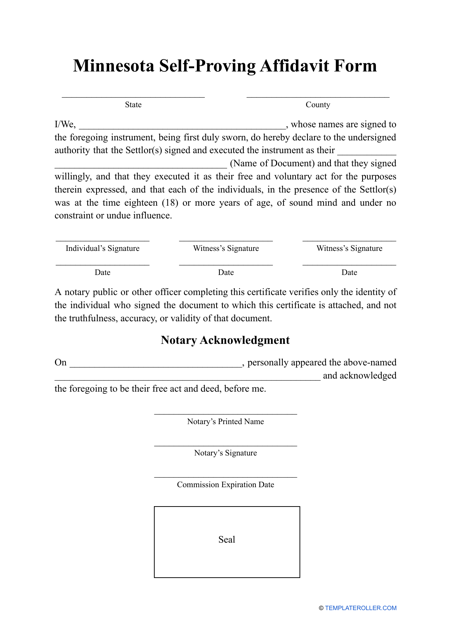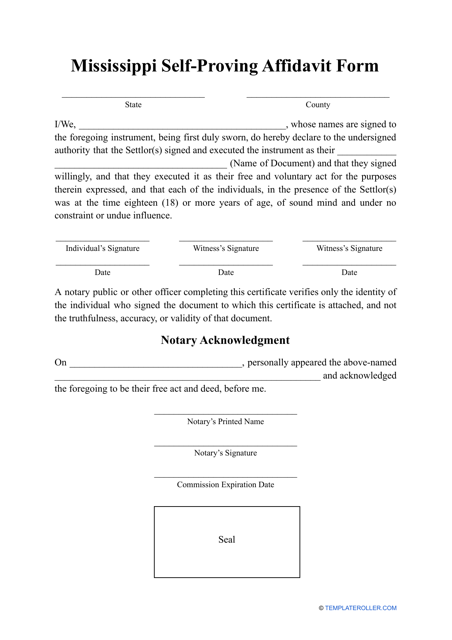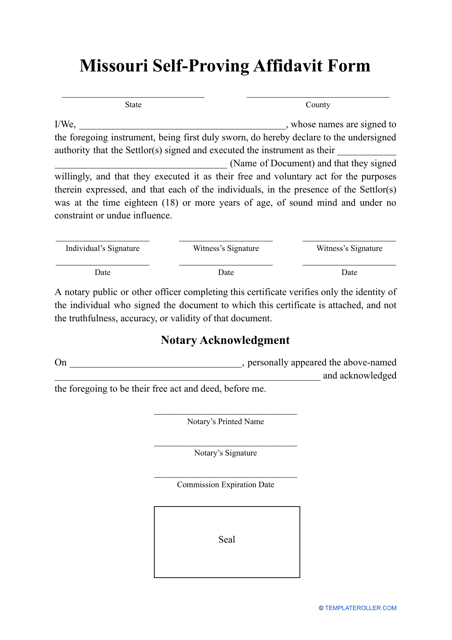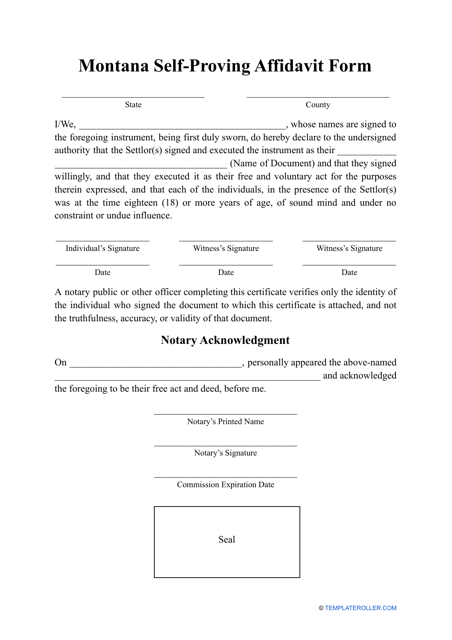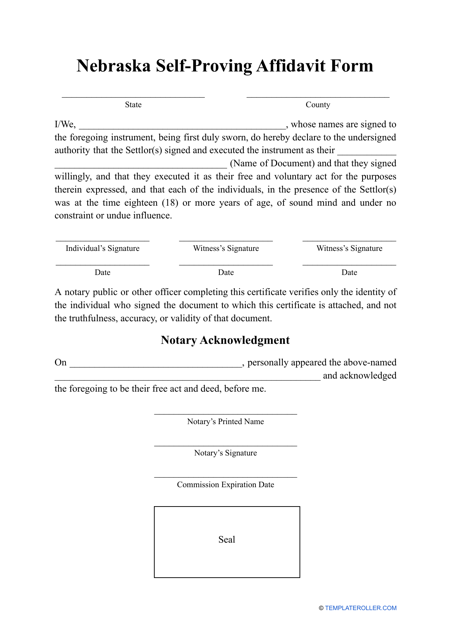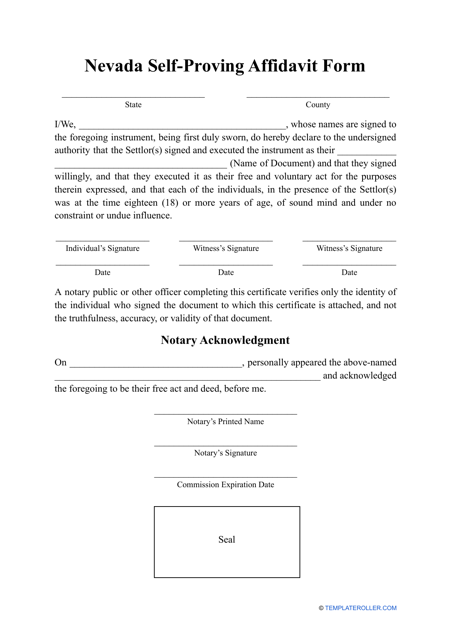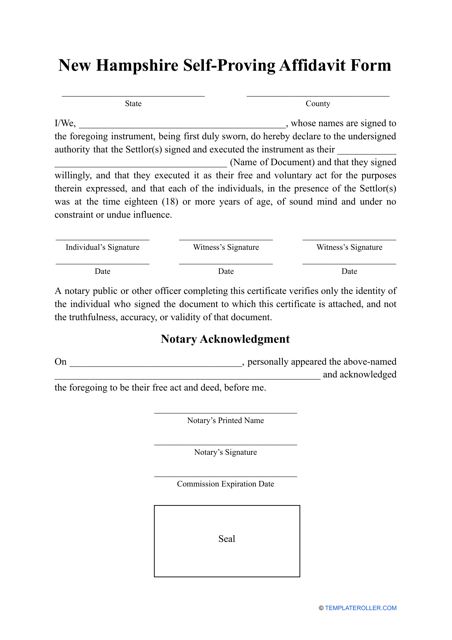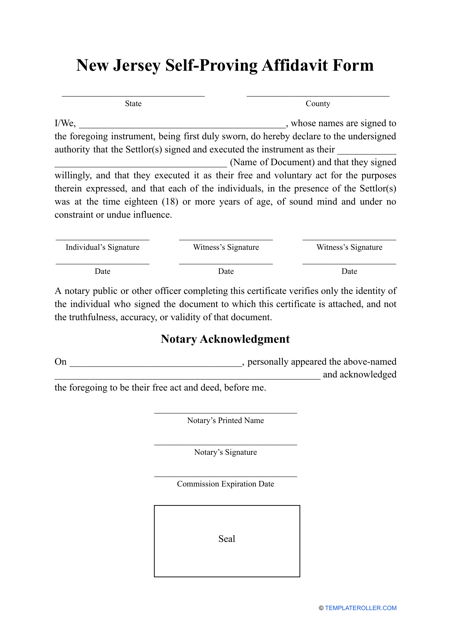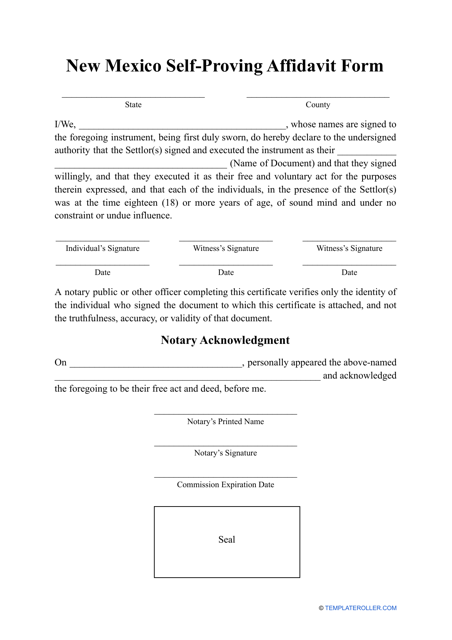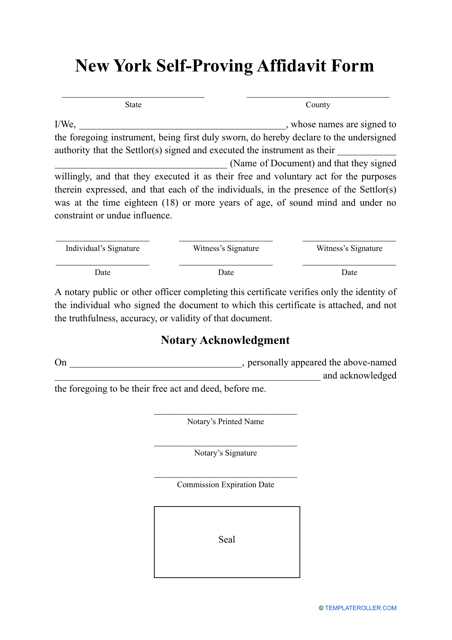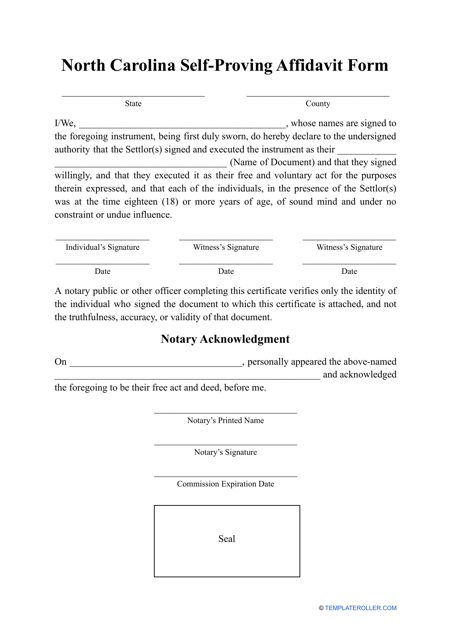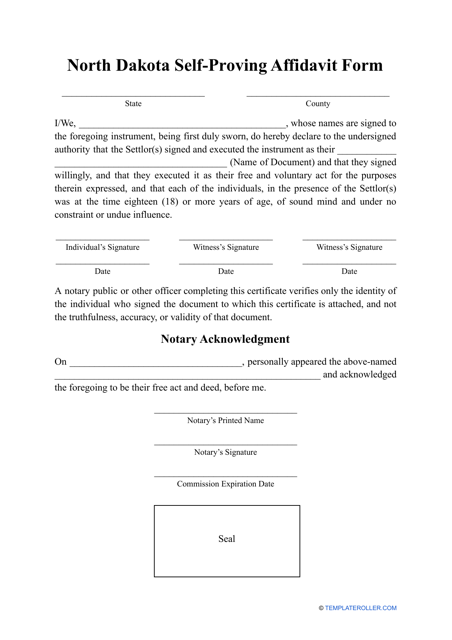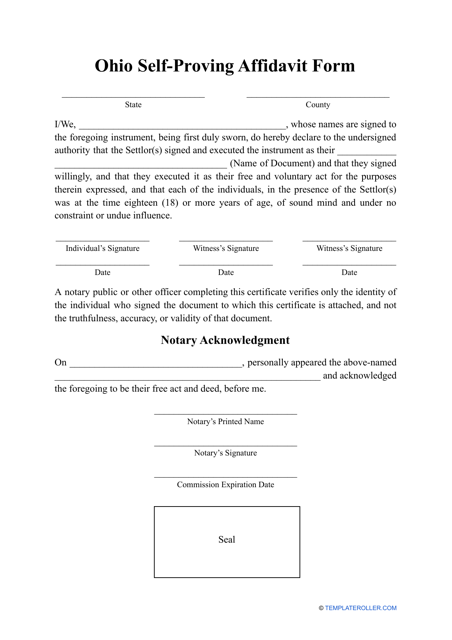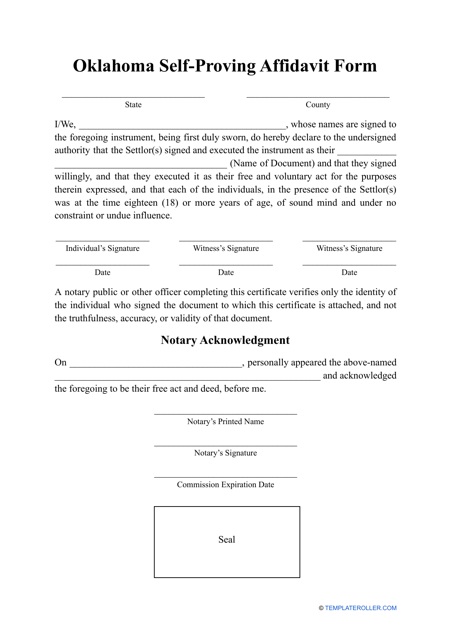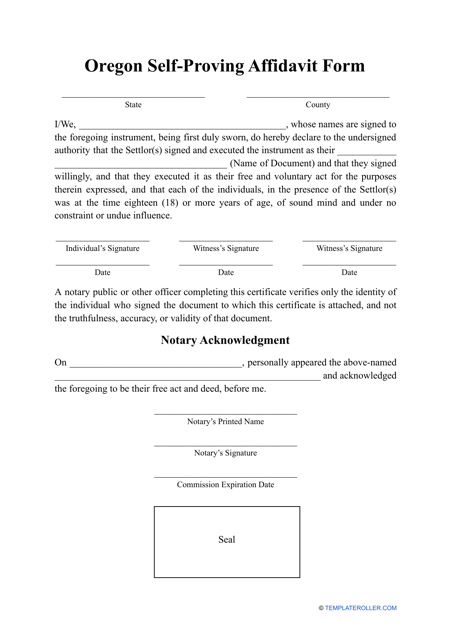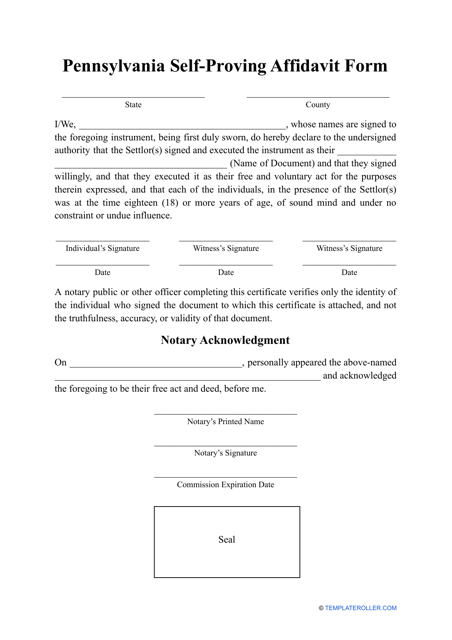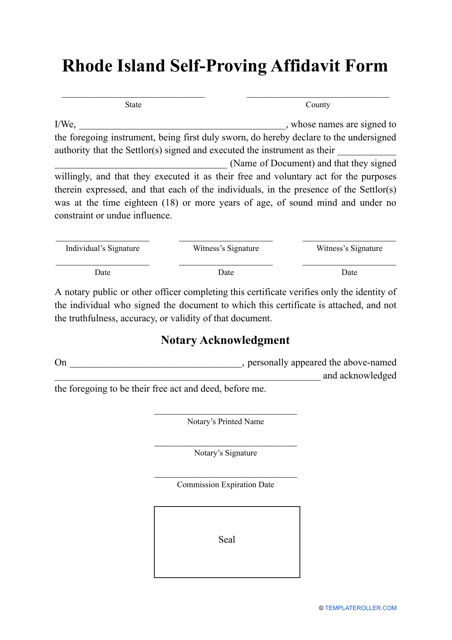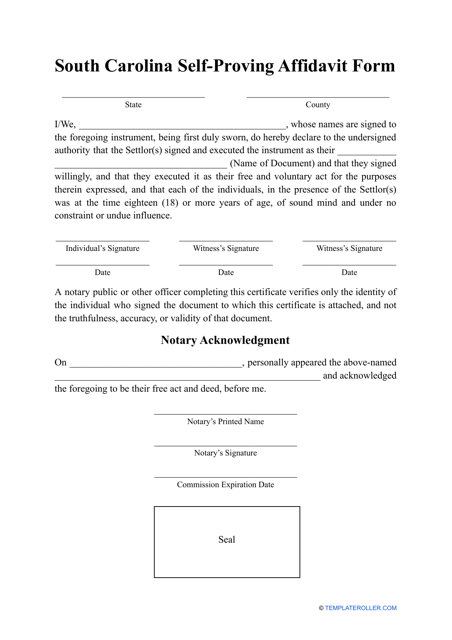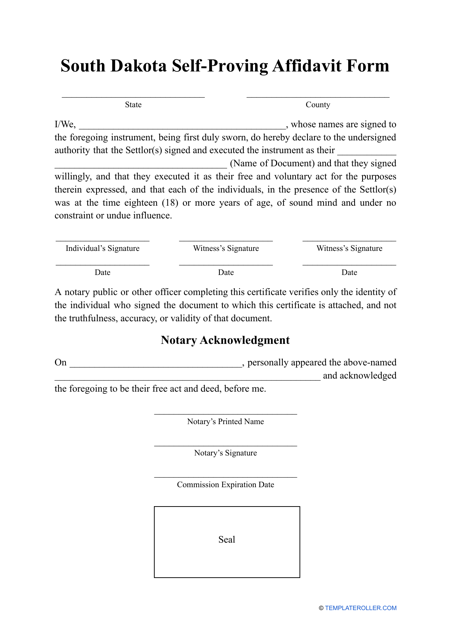Free Affidavit Forms and Templates
Related Articles
Documents:
174
This Form is used for creating a self-proving affidavit in the state of Alaska. A self-proving affidavit is a sworn statement made before a notary public that helps validate the authenticity of a will or other legal document.
This Form is used for creating a self-proving affidavit in Arizona. A self-proving affidavit is a sworn statement that verifies the authenticity of a document, such as a will or a contract, and is signed by a notary public.
This form is used for creating a self-proving affidavit in Arkansas. It allows individuals to provide sworn statements that can be used as evidence in legal proceedings.
This form is used for creating a self-proving affidavit in the state of California. A self-proving affidavit is a document that helps confirm the authenticity of a will or other legal document.
This form is used for creating a self-proving affidavit in the state of Colorado. A self-proving affidavit is a legal document that accompanies a will to verify its authenticity.
This Form is used for creating a self-proving affidavit in the state of Connecticut. A self-proving affidavit is a legal document that helps to establish the authenticity of a will.
This form is used for creating a self-proving affidavit in the state of Delaware. It allows individuals to have their documents signed in the presence of a notary public, making them legally binding and admissible in court.
This form is used for creating a self-proving affidavit in the state of Florida.
This document allows individuals in Georgia to create a self-proving affidavit, which can be used to make a will or other legal documents more easily admitted to probate after their death. It serves as a sworn statement that the contents of the document are true and accurate.
This Form is used for creating a self-proving affidavit in the state of Hawaii. It is used to establish the authenticity of a signed document or will.
This type of document is a Self-proving Affidavit Form specific to the state of Idaho. It is used to provide a sworn statement that confirms the authenticity of a document or will.
This Form is used for creating a self-proving affidavit in the state of Illinois. A self-proving affidavit is a legal document that helps validate the authenticity of a will or other important documents.
This document is a self-proving affidavit form used in the state of Indiana. It allows a person to make a sworn statement under oath that the contents of a will are true and accurate.
This document is used for creating a self-proving affidavit in Iowa. It is a legal declaration that is signed and notarized to confirm the authenticity of a will.
This document is used for creating a self-proving affidavit in the state of Kansas. A self-proving affidavit is a legal statement that accompanies a will, ensuring that it will be accepted as valid without requiring witnesses to testify in court.
This Form is used for creating a self-proving affidavit in the state of Kentucky.
This document is used for creating a self-proving affidavit in the state of Louisiana. A self-proving affidavit is a written statement that declares the authenticity of a document or the truthfulness of certain facts. It can be used as evidence in legal proceedings.
This form is used for creating a self-proving affidavit in the state of Maine. A self-proving affidavit is a legal document that allows a person to declare the authenticity of their own will or other legal document.
This Form is used for creating a self-proving affidavit in the state of Maryland. A self-proving affidavit is a document that verifies the authenticity of a will or other legal document, making it easier to admit into probate court.
This document is used in Massachusetts as a self-proving affidavit form. It is a legal document that allows individuals to validate the authenticity of their own sworn statements.
This document is a self-proving affidavit form used in the state of Michigan. It allows individuals to affirm the authenticity of their own statements or signatures without the need for additional witnesses.
This Form is used for creating a self-proving affidavit in the state of Minnesota. It can be used to provide evidence and authentication for important legal documents such as wills, trusts, and power of attorney.
This document is used for creating a self-proving affidavit in the state of Mississippi. It allows individuals to provide a sworn statement that can be used as evidence in legal proceedings without the need for additional witnesses.
This form is used for creating a self-proving affidavit in the state of Missouri.
This document is used in the state of Montana for individuals to create a self-proving affidavit, which verifies the authenticity of their signature on a legal document.
This form is used for creating a self-proving affidavit in the state of Nebraska. It allows individuals to have their signature on a document notarized in advance, making it easier to prove the authenticity of the document in the future.
This document is used to create a self-proving affidavit in the state of Nevada. A self-proving affidavit is a statement that verifies the authenticity of a will or other legal document. It is often used to streamline the probate process.
This Form is used for creating a self-proving affidavit in the state of New Hampshire. A self-proving affidavit is a legal document that can be used to validate the authenticity of a will or other legal agreements.
This document is a form used in New Jersey to create a self-proving affidavit, which is a legal document used to verify the authenticity of a will.
This document is used in New Mexico to create a self-proving affidavit, which can be used to validate the authenticity of a will.
This document is used for creating a self-proving affidavit in the state of New York. It is a legal form that allows a person to affirm the authenticity and validity of their own written statement. Use this form to make your affidavit legally binding and admissible in court.
This form is used for creating a self-proving affidavit in North Carolina. A self-proving affidavit is a document that helps to validate the authenticity of a will or other legal documents. It typically includes the signatures of witnesses and a notary public, ensuring that the document can be easily accepted in court.
This Form is used for creating a self-proving affidavit in North Dakota. A self-proving affidavit is a legal document that helps to establish the authenticity of a will or other important paperwork.
This document is used in Ohio for the purpose of creating a self-proving affidavit, which is a sworn statement that does not require additional witness testimony to validate its authenticity.
This form is used for creating a self-proving affidavit in Oklahoma. It is used to validate the authenticity of a document or testimony without the need for further evidence or witnesses.
This Form is used for creating a self-proving affidavit in the state of Oregon. It allows individuals to authenticate the validity of their own sworn statements without the need for additional witnesses.
This document is used in Pennsylvania to create a self-proving affidavit. It allows individuals to affirm the authenticity of their signature on a legal document in advance, making it easier for the document to be accepted as evidence in court.
This document allows individuals in Rhode Island to create a self-proving affidavit, which is a sworn statement that can be used as evidence in legal proceedings without the need for additional witnesses.
This Form is used for creating a self-proving affidavit in the state of South Carolina. A self-proving affidavit is a legal document that helps ensure the validity of a will or other important document by allowing the signer to affirm its authenticity in the presence of witnesses.
This type of document, known as a Self-proving Affidavit Form, is used in the state of South Dakota. It allows individuals to create a legal affidavit that can be used to prove the authenticity of a will.

